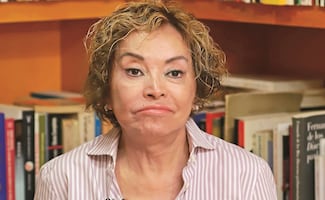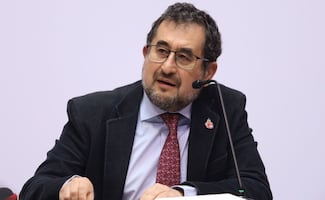has distracted global attention from the war in Libya and the growing disputes in the eastern Mediterranean , which have a similar potential to trigger an armed conflict involving several powers.
“Regime change” failure: Libya’s 8-year-long civil war comes to Tripoli
The civil war in the African country , where the United Nations-recognised Government of National Accord ( GNA ), led by Prime Minister Fayez al-Sarraj is losing against Field Marshal Khalifa Haftar and his Libyan National Army ( LNA ) supported by Russia , France , Saudi Arabia , Egypt , and the United Arab Emirates ( UAE ), took a major turn on November 27 with Turkey’s decision to intervene on behalf of the former, as a way to consolidate its territorial claims in the gas-rich eastern Mediterranean basin .
While Haftar , an old officer from Muammar Gaddafi’s regime with extensive contacts in Moscow and Washington , declared a jihad ( Holy War ) in response to the Turkish move , in Ankara President Recep Tayyip Erdogan has recurred for his intervention to the same militias that just months ago scandalized the world, destroying the Kurdish dreams of independence in northern Syria .
According to Al-Monitor.com , Turkey is offering to the Syrian National Army , an umbrella group trained and equipped by its armed forces with the initial mission of fighting the Damascus government , salaries of nearly USD $3,000 (compared to USD $50 per month in Syria ) to those who would go to Libya for at least three months.
More than 1,000 fighters, including extremists from the Hayat Tahrir al-Sham faction allied to the Islamic State and the Muslim Brotherhood , have reached the northern African country, and about 2,000 were receiving training in Turkey earlier this month, confirming the mercenary nature of these groups, called in the past “ moderate rebels ” by the U.S. and western media .
Faced with the escalation of violence — LNA troops are approaching Tripoli and Misrata ,— Russian President Vladimir Putin and Erdogan jointly called for a truce. However, Haftar left Moscow on Monday without signing the ceasefire deal proposed by both leaders, while Sarraj’s delegation refused any direct meeting with the 75-year old warlord.
Turkish officials stressed that the ball is now in Russia’s court, coinciding with reports explaining that Haftar’s decision to maintain the offensive in spite of a fragile truce that went into effect on Sunday, is the result of his bet for a definitive military victory backed by the UAE , France , and possibly the U.S. , concerned by the new status of the Kremlin as a power broker in the region.
For his part, Erdogan warned, “if attacks on the legitimate government and our brethren continue, we will never refrain from teaching a lesson to putschist Haftar .” Alarmed with the prospect of another wave of refugees, and Libya turning into “ the new Syria ,” Germany is hosting a summit on Sunday with the presence of Erdogan and his peers from France , Russia , Italy , the UAE , and Algeria .
Historic quarrels
The background of the conflict lies in the dispute for the energy resources discovered and developed in the region, aggravated by historic quarrels; in November, Turkey also signed an agreement with the GNA establishing new maritime boundaries between both countries. The area spanning from southwest Turkey to northeast Libya cuts across a zone claimed by Greece and Cyprus , where plans for a future gas pipeline are in the works to link gas fields with European markets .
Ankara
says that its gas exploration and drilling activities within Cyprus’ territorial waters are necessary to ensure gas revenues are shared between Nicosia and the Turkish Republic of Northern Cyprus , which is recognized solely by Turkey . The Euroasiatic nation was marginalized in 2019 from the Eastern Mediterranean Gas Forum , created by Cyprus , Greece , Israel , Jordan , Palestine , Egypt , and Italy .
In November, Nicosia signed a USD $9 billion gas extraction deal with the Israeli company Delek , UK-Dutch giant Shell, and U.S.-based Noble Energy to develop the divided island’s sizable offshore reserves. ExxonMobil and Qatar Petroleum also started drilling on behalf of Cyprus last year, after Nicosia struck a deal to build a natural gas pipeline with Egypt , which discovered a large gas field in its waters.
Moreover, this month Greece , Israel , and Cyprus signed an agreement for the 2,000-km EastMed pipeline , which would run from Israel’s Levantine Basin offshore gas reserves to Cyprus , Crete , and the Greek mainland . The project, with a budget of USD $6 billion , is expected to satisfy about 10% of the European Union’s natural gas needs and reduce its dependency on Russia and the Caucasus region .
Nevertheless, Erdogan and the President of the self-declared Turkish Republic of Northern Cyprus , Mustafa Akinci , have remarked no plan can proceed without their countries’ consent, noting that EastMed’s route was much longer and more expensive than other alternatives.
Adding to the complex struggle of who will sell gas to the European Union , Moscow’s position remains unclear due to the multiple interests at stake. Despite its support for Haftar —for instance, deploying in Libya the private military company Wagner ,— Russia shares with Ankara the gas pipeline TurkStream to southern Europe through Turkey , inaugurated on January 8 .
Furthermore, Erdogan is a Russian ally against U.S. and European Union sanctions, although Turkish help is still crucial for the survival of the last rebel stronghold in Idlib , Syria . For its part, Nicosia granted the Russian navy access to its ports in 2015, and wealthy Russians have historically used Cypriot banks to launder money and evade sanctions.
In Athens , meanwhile, several experts as Marios Evriviades , a former Cypriot diplomat and presidential advisor, are critical of the passivity of Greece in the face of Turkey’s “ cartographic propaganda ,” underscoring that Ankara ignores the exclusive economic zone ( EEZ ) of Greek islands in the Aegean Sea and the Mediterranean .
“Especially on the issue of sea borders and the EEZ , Athens has been chasing its tail for decades in the belief that Turkish aggression will magically evaporate,” said Evriviades , quoted by the Dances With Bears blog . Nonetheless, Greek policy could be changing: according to a leak, during his recent meeting with U.S. President Donald Trump , Prime Minister Kyriakos Mitsotakis affirmed that if Greece’s sovereignty is challenged, “we will respond militarily.”
Turkey
and Libya have an old relationship that dates back to the 16th century. The Maghrebi country was once called Ottoman Tripolitania , from 1551 to 1864 under the Ottoman Empire —the empire’s last African province, occupied by Italy in 1912. Today, Libya’s devastation after the allied intervention to topple Gaddafi is transforming the nation into a battleground for foreign ambitions, including what Turkey’s detractors consider “ neo-Ottomanism .”
In the same vein, an analysis published by the official Anadolu Agency highlights that “Turkey’s large area of defense” extends “from Qatar to the Libyan capital of Tripoli , cutting across Cyprus in the middle of the line.”
The analysis explains that Turkey needs to expand its geopolitical line of defense over a larger area, “especially with the global struggle reaching chaotic proportions on all fronts. This large area is formed at one end by the Mediterranean island of Crete , and at the other by the headquarters of the Turkey-Qatar Combined Joint Force Command overlooking the Strait of Hormuz in the Persian Gulf , which is covered by the entire world and especially by energy markets. At the southernmost end of this area is the Somali Turkish Task Force Command in Mogadishu , in the Indian Ocean coast ”.
Stressing the sentence “power that dominates Mediterranean dominates three continents,” the document adds that it is “time for a Turkish base in Libya ,” located in the strategic triangle of Al Khoms-Zlitan-Misrata , a project justified, it says, by Haftar’s offensive, and the Memorandum of Understanding on Security and Military Cooperation between Tripoli and Ankara .
Editing by Sofía Danis
More by Gabriel Moyssen
Noticias según tus intereses
[Publicidad]
[Publicidad]













